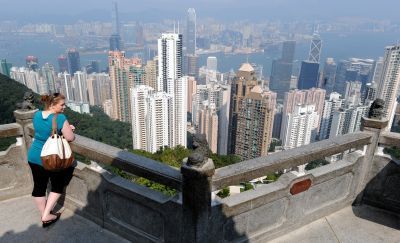Chinese migrants change names to be 'more Hong Kong'

An increasing number of mainland Chinese migrants to Hong Kong are changing the spelling of their surnames to avoid discrimination in the former British colony, a report said Monday.
Lawyer Raymond Tang told the daily South China Morning Post that his firm was seeing more mainland-born clients legally changing the romanised spelling of their name to appear more like local Hong Kong residents.
For example, some Putonghua-speaking mainland clients would ask to have "Zhu" changed to "Chu", and "Zeng" to "Tsang," he told the paper.
The romanisation of mainland Chinese and Hong Kong names is based on the pronunciation of Chinese characters in their respective languages - the mainland dialect Putonghua, also known as Mandarin, and Cantonese in Hong Kong.
"Some names in Putonghua pronunciation start with X or Z and many new migrants from the mainland want to change the spelling of their names to (local usage) in order to sound like a Hong Konger who grew up in the city," Tang told the newspaper.
"Some whose names are only two characters also want to change them to three, as names with two characters are more common on the mainland," he was quoted as saying.
Statistics from the Immigration Department showed there were a monthly average of 105 name-change applications in the first nine months of this year, higher than in the previous four years, the paper said.
Despite their geographical proximity, the cultural and economic development of Hong Kong - which was returned from British to Chinese rule in 1997 - and mainland China are vastly different.
In the past, mainland Chinese visitors to Hong Kong often complained they were discriminated against and laughed at because of their accent and "cultural backwardness".
But the situation has started to change in recent years, as China becomes a strong backbone for Hong Kong's economic development.
Recent cases have seen Hong Kong people complain that some businesses, especially high-end retailers, are focusing their attention on super-wealthy mainland Chinese customers instead of locally-born shoppers.
Join our commenting forum
Join thought-provoking conversations, follow other Independent readers and see their replies
Comments
Bookmark popover
Removed from bookmarks